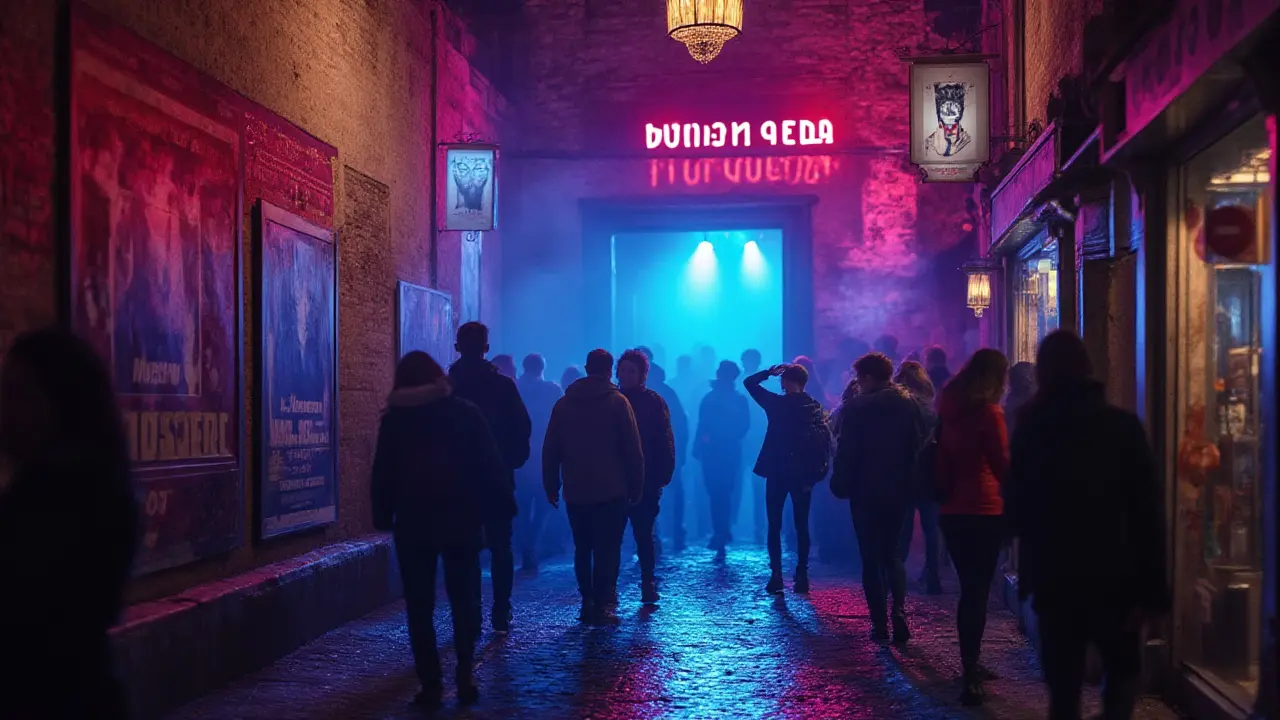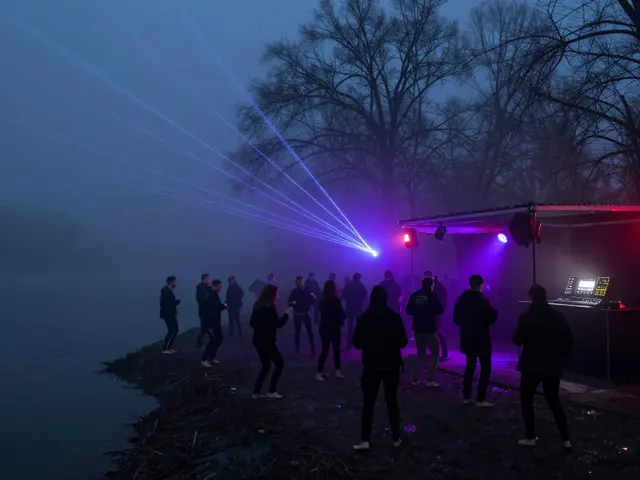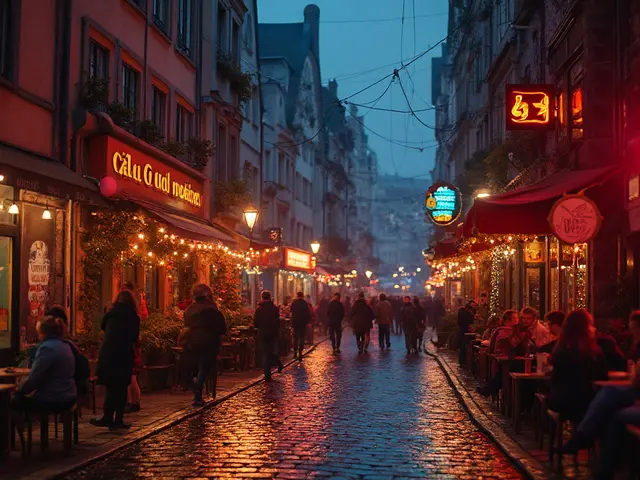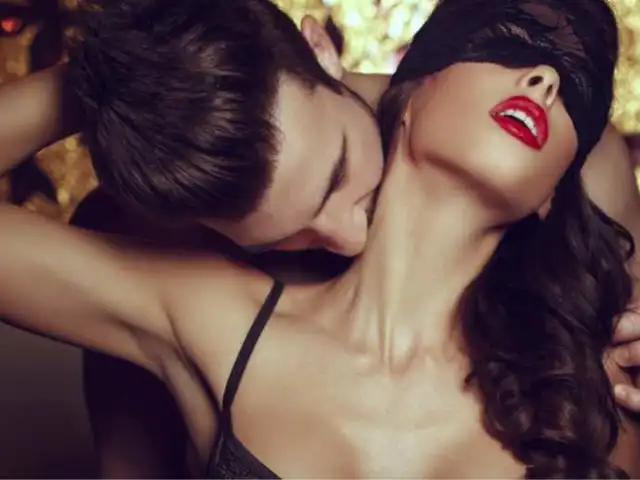Key Points: Night Club Top Spots for Night Owls
- A few clubs in Munich never really sleep—if you know where to look, you can keep dancing until sunrise.
- Hotspots change fast, and word-of-mouth can matter more than glossy billboards when hunting Munich’s best nightlife experiences.
- Clubbing comes in all flavors here: exclusive VIP lounges, gritty basement techno temples, indie music venues, and rooftop bars with city views.
- Most clubs have strict door policies—dress sharp, bring ID, and sometimes a dash of attitude.
- The right timing, local tips, and knowing your music can turn a regular night out into an epic memory.
Direct Answer: Munich’s Top Nightclubs for Night Owls
If you’re hunting for the best nightclubs in Munich that stay lively late, head to Blitz Club for cutting-edge techno and an all-night buzz, P1 for the A-list scene, Rote Sonne for underground beats, Neuraum for mega-club energy, and Harry Klein for that cult electronic vibe. Each caters to different tastes, but all guarantee the kind of night that’s worth staying out for. Be prepared: weekends get crowded, entry lines are real, and good shoes (plus cash for the cloakroom) are your best friends.
Comprehensive Guide to Nightclubbing in Munich
Munich isn’t just about beer gardens, old-town charm, or massive Oktoberfest parties. When the sun dips, a completely different energy pulses through the city. The trick is knowing which doors are worth pushing open. Some clubs feel like a secret whispered between friends—no giant neon signs, just a low thrum of bass guiding you toward an entrance. Other venues bank on glitz and velvet ropes, drawing a stylish crowd that practically lives for long weekends. But there’s a reason Munich consistently ranks high on lists of Europe’s best party cities. Local promoters curate events weeks in advance, booking international DJs or up-and-coming German acts that spin until dawn.
Let’s be honest, your clubbing experience can hinge on insider knowledge. Knowing when the most popular parties happen, or cruising by neighborhoods like Glockenbachviertel and around the Hauptbahnhof, opens up a calendar packed with events—from student nights to queer-friendly extravaganzas. Weekdays are quieter, so if you’re not one for massive crowds, Thursday nights in university quarters offer plenty of action but with a friendlier, less hectic vibe. Fridays and Saturdays, though? That’s when the huge venues like Neuraum and P1 pull in DJs, international crowds, and thousand-strong guest lists.
What sets Munich apart isn’t just variety, but the city’s attention to detail. Sound systems in legendary spaces like Blitz are engineered so every beat is crisp; even the lighting rigs become part of the show. The whole city is surprisingly easy to navigate (thank you, U-Bahn!). Most clubs cluster near Marienplatz, Ludwigsvorstadt, and the Kunstareal, so bar-hopping without a taxi is possible. A quick word to the wise: cash is king at the door, and sometimes they’ll ask you to check your coat for security reasons—don’t skip the cloakroom, especially in winter.
Definition and Context: What Makes a Nightclub in Munich Stand Out?
So, what exactly turns a club into a late-night legend? In Munich, the formula is a mix of world-class sound systems, carefully curated DJ lineups, and a crowd that knows how to party. Size doesn’t always matter. Some of the most memorable parties happen in venues with fewer than 200 people, packed tight, every body moving to the same beat. Others, like Neuraum, sprawl across old railway stations and pump out chart-toppers across multiple dance floors.
If you’re into alternative music, clubs like Rote Sonne and Harry Klein are impossible to ignore. Rote Sonne feels like stumbling into Berlin’s underground, right in the heart of Bavaria. Harry Klein, meanwhile, is a temple for electronic dance music fans, and their visual installations are famous across Europe. For something very Munich, P1 stands practically alone. You’ll spot footballers, models, and influencers mixing with international students and locals who dress like every night out is a photoshoot.
Clubs in Munich are also known for being trend leaders. Recent years have seen more venues embrace sustainability (think LED lighting, minimized waste, and vegan snacks for sale) and community events—like daytime yoga sessions or drag brunches in club settings. Plus, the city’s famously efficient public transport means you can party late without worrying about a taxi home.
Benefits of Munich Nightlife: More Than Just Dancing
What’s the big deal about clubbing in Munich? First off, there’s something for everyone. From massive dance floors to hidden basement raves, choices abound. If you’re new in town, clubs double as great places to meet locals or find adventurous friends. Unlike those stuffy bars where you can’t hear yourself think, nightclubs are loud, but in the good way—the kind where every track makes you want to move. Networking happens here too; who knows, your future collaborator or business partner might be passing you on the way to the bar.
Music lovers get the real treat. The city punches above its weight for DJ culture. A cursory glance at international festival flyers proves it—many Munich-based acts travel wide, while the city hosts names like Âme, Thomas Brinkmann, and acts from Kompakt Records. Some nights, clubs like Blitz host live acts, so you might catch a synth or drum machine in action.
Safety is another perk. Munich consistently ranks among the safest big cities in Europe, and club security plays a part in that. They’ll check IDs, enforce smart policies, and bounce genuinely problematic guests. It makes for a fun, low-stress atmosphere where solo clubbers or small groups don’t feel out of place. Plus, if you do call it a night at four in the morning, the S-Bahn is never far. Hungry after-hours? Late-night döner kebabs and pretzel stands are always nearby.
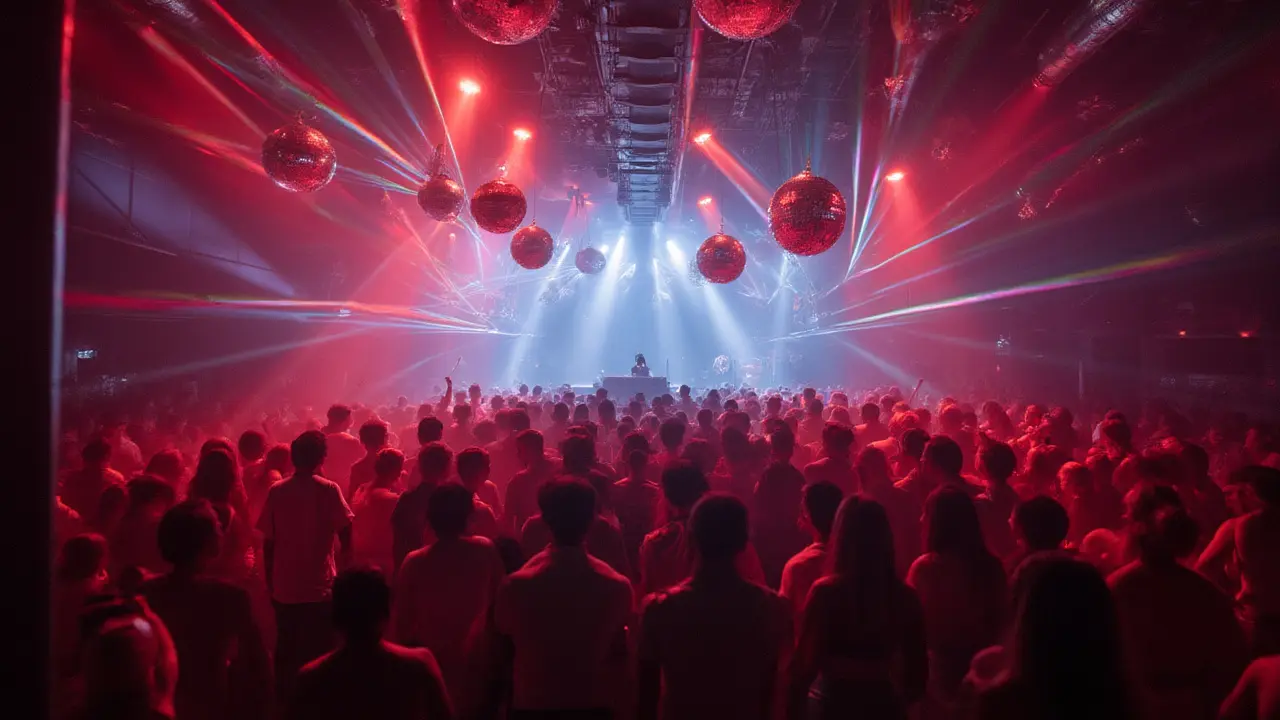
Types of Clubs and Must-Visit Hotspots in Munich
Let’s cut through the noise: what kinds of clubs can you actually find in Munich? It boils down to a few main types.
Munich nightclubs come in glitzy, gritty, and everything in between. For high-glamour and VIP bottle service, P1 is legendary—founded in the 1980s and once dubbed "Germany’s Studio 54." Entry can be tough (especially if you’re not part of the beautiful crowd), but the people-watching is next-level.
For massive, high-energy nights, Neuraum is your spot. Housed in a converted railway building beneath Munich’s central station, Neuraum’s multiple dance floors play pop, chart, and electronica, with themed nights and a younger, international crowd.
Looking for something more underground? Rote Sonne is your indie-techno escape. It’s packed on weekends, the bar staff is friendly, and resident DJs keep the energy up without relying on mainstream hits.
Harry Klein is the place to go for fans of cutting-edge electronic music and jaw-dropping visuals. They host frequent DJ takeovers, as well as art shows and digital installations. Blitz Club nails the sweet spot between serious sound and inclusive parties; their eco-friendly approach and futuristic sound system have a loyal following.
For the after-after party, check out Bahnwärter Thiel. It’s built from repurposed train carriages, has killer art installations, and occasionally runs until breakfast time. Smaller clubs like Palais and Call Me Drella offer themed nights—think hip-hop, disco, or retro pop. You’ll even find niche queer spots around Glockenbachviertel famous for themed drag nights and live performances.
How to Find and Enjoy Nightclubs in Munich Like a Local
Makes sense to ask: how do locals score those elusive guest list spots or avoid the infamous club rejections at the door? Start by knowing the unofficial club code—dress sharp, travel in small groups, and act confident. Munich’s bouncers are notorious for turning away big bachelor parties, so leave the loud costumes at home.
Look up club schedules online and book tickets ahead of time for major nights, especially guest DJ events or big festivals like Isar Rave. Many clubs now offer online lineups and tickets, which speeds up entry and confirms your RSVP. Don’t forget your ID—Europe’s clubs can be strict regardless of age.
Neighborhood matters. For classic venues and mega-clubs, head toward the Hauptbahnhof area or busy arteries near Sendlinger Tor. Glockenbachviertel is a must for LGBTQ parties and creative small spots where cocktails are as carefully crafted as the DJ sets. In summer, check for open-air raves or pop-up events by the river Isar.
If social media is your thing, Instagram and TikTok often give real-time clues about which club is "it" tonight—just look for location tags or posts with unusually long lines outside. Apps like Resident Advisor list gigs, and Facebook groups for Munich nightlife often tip off secret pop-up parties or last-minute guest list opportunities.
Transport is no big headache. The U-Bahn and S-Bahn trains run late on weekends and drop you close to every major venue, so there’s zero excuse for drinking and driving. Some clubs even have night buses or shuttle services right outside. Coat checks are common (and sometimes mandatory), so budget €2-€3 extra when planning your night.
What to Expect During a Night Out: Vibes, Price, Culture
Ever walked into a club and instantly felt you belonged—or that it’s not your scene? Munich’s got both ends of the spectrum, usually announced by the bouncers’ first stare. Inside, though, the crowd tends to blend together: students, tourists, off-duty professionals, and the city’s nightlife veterans. Bars near the door ease you in with friendly bartenders and affordable beers or cocktails (€8-€15 each; shots, €4-€7).
Dress codes vary. P1 loves high fashion, so think blazers, heels, or all-black everything. Rote Sonne and Blitz? Comfort first, but still clean—sneakers are fine if they’re designer or at least not trashed. Smoking bans mean dance floors stay pleasant all night, though expect occasional outdoor terraces for a break.
Music is the core. No surprise, Munich leans heavily on techno, house, and electro, but chart pop and funky classics fill out the setlists at mainstream clubs. Don’t worry if you’re not a music snob. The DJs read the crowd and rarely let the energy drop.
Food options are limited—most clubs offer snacks, not full menus. So, eat beforehand or be ready to hit up nearby bakeries and kebab shops after last call. Security is tight but fair. Bag checks happen at the door, and clubs don’t tolerate disrespect. Lost property is common, so keep an eye on your stuff and trade phone numbers if you click with someone—phones get left behind more often than coats.
| Club | Music Style | Average Entry (€) | Known For |
|---|---|---|---|
| P1 | Mixed, Chart, Electronic | 18-25 | VIP Scene, Glamour |
| Blitz Club | Techno, House | 15-18 | World-class Sound, Sustainability |
| Neuraum | Mainstream, Electro, Pop | 12-16 | Huge Venue, Multiple Floors |
| Rote Sonne | Techno, Indie | 10-15 | Underground Vibe |
| Harry Klein | Electronic, Visual Art | 12-18 | Audio-Visual Shows |
Pricing, Booking, and Safety Tips for Clubbing in Munich
Entry fees depend on night and guest DJ, but expect a median €10-€20 range. VIP tables or private areas at P1 and Neuraum skyrocket—booking in advance is a must and can run €200+ for bottle service. Some smaller venues don’t take cards at the door, so bring cash.
Booking tricks? Buy tickets online when you can, especially for special events. Some Instagram pages for clubs offer guest list spots just by DM-ing in advance, though this isn’t a sure bet. Early arrival (before midnight) often means easier entry and sometimes a lower cover charge. Fridays and Saturdays see peak crowds from 12:30 am onward. For big festivals (think Summer Rave at Zenith), tickets sell out weeks ahead.
Clubbing feels safe in Munich, but keep your wits about you. Stick to busy streets, use public transit, and mind your drink. Unattended coats and mobile phones are like magnets for petty thieves, so use those cloakrooms. If you see trouble, security staff act fast, and emergency services in Munich are just as swift. Never walk home alone if you’re tired—night trams and Ubers are your late-night lifeline. A tip: save the address of your hostel, hotel, or apartment in your phone’s favorites folder before you head out.
Nightclubs vs. Bars in Munich: Quick Comparison
| Aspect | Nightclubs | Bars |
|---|---|---|
| Atmosphere | Loud, energetic, dance-focused | Casual, social, relaxed |
| Music | Live DJs, electronic, club hits | Background music, live bands, indie nights |
| Entry Fee | €10-€25 on average | Free or €3-€7 cover |
| Opening Hours | Stay open until 5-6am | Close by 2am |
| Dress Code | Often strict; stylish/fashionable | Casual, come-as-you-are |
| Drinks | Higher-priced cocktails, bottle service | Cheaper, wider beer selection |
| Queue Waits | Sometimes long, especially weekends | Usually short |
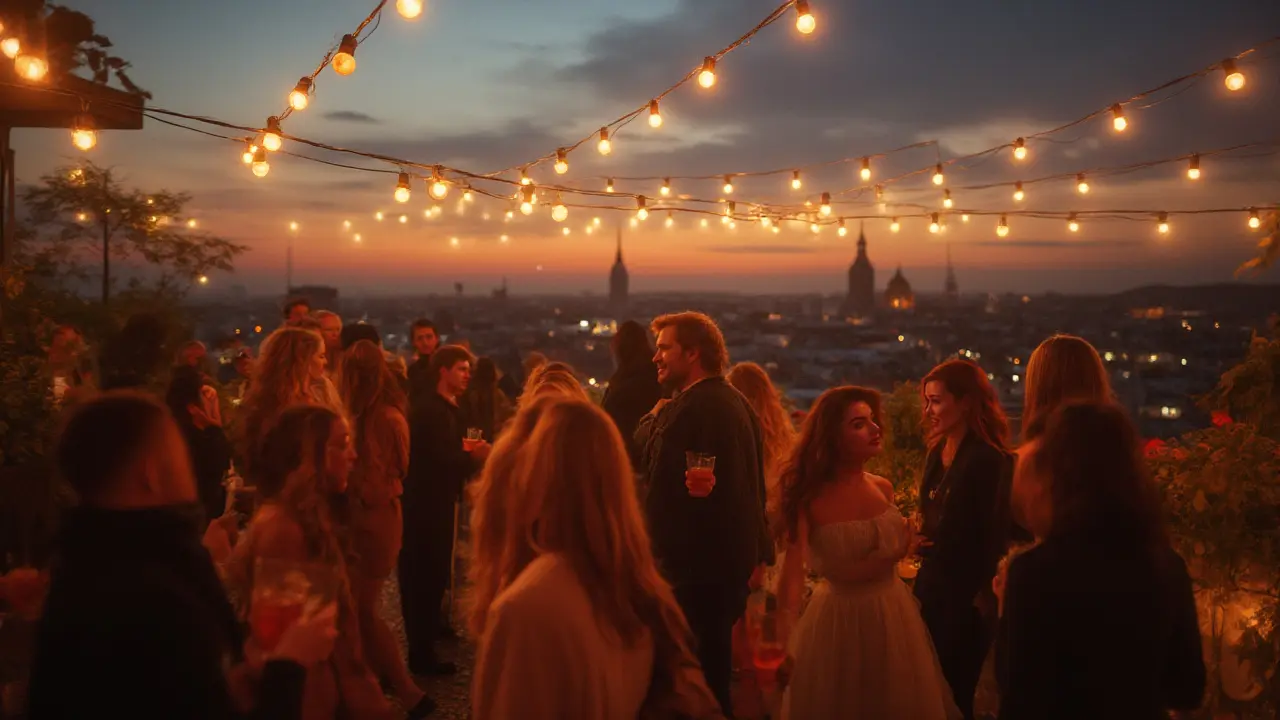
FAQ: Top Questions About Nightclubs in Munich
- What’s the minimum age for club entry in Munich? 18 is standard, but always bring ID in case it’s checked.
- Can you wear sneakers into Munich clubs? Clean, designer sneakers work fine for techno clubs; for glam venues, dress shoes are safer.
- When do Munich nightclubs really get going? The dance floors usually fill up after midnight and stay busy until 5 or 6 in the morning.
- Do you need to book in advance? For major events and top clubs, booking tickets ahead online is smart. Otherwise, lines are longest past 1 am Fridays and Saturdays.
- Is Munich’s nightlife LGBTQ friendly? Absolutely. Glockenbachviertel is the main queer hub, but queer-friendly nights happen in many popular spots.
- Can foreigners get into Munich’s top clubs? Yes, but clubs can be picky—dress well and avoid large groups to boost your odds.
- What should you never forget at a Munich club? Cash, ID, and a good attitude. Also, coat check tokens!
Craving that feeling you only get under flashing lights and a perfect beat drop? Pack your ID, rally your crew, and go find where Munich’s secret party pulse beats loudest. The city’s clubs—old school and cutting edge alike—are waiting to keep you out ‘til sunrise. No more FOMO: Munich nightclubs are calling.

